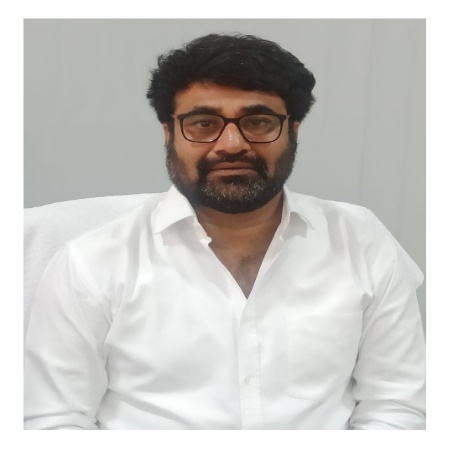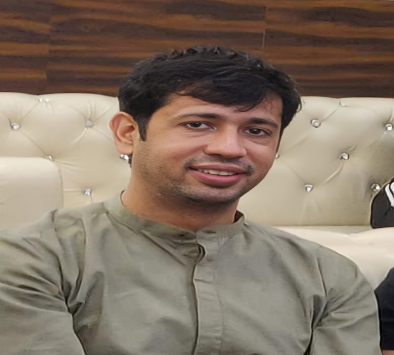




National Institute of Technology, Kurukshetra

Emlyon Business School, France

CSUSB, USA
The proposed 4th International Conference on Machine Learning and Big Data Analytics (ICMLBDA) 2024 provides a platform for researchers and professionals to share their research and reports of new technologies and applications in ML and Big Data Analytics like biometric Recognition Systems, medical diagnosis, industries, telecommunications, AI Petri Nets Model-Based Diagnosis, gaming, stock trading, Intelligent Aerospace Systems, robot control, law, remote sensing and scientific discovery agents and multiagent systems; and natural language and Web intelligence.
The theme of the conference is "Embracing Innovations" for the secure Next Generation Computing and Communication Systems. The fast pace of advancing technologies and growing expectations of the next generation means that the researchers must continuously reinvent themselves through new investigations and development of the new products. Honestly embracing innovations and new ideas can help break down the organizational barriers and bring researchers together across the various disciplines. The aim of ICMLBDA 2024 is to bring leading academicians, industrialists, government standard organizations, scientists, research scholars, UG/PG students on the same platform to present their work, discuss and accept the innovations for the implementation of secure next generation computing and communication systems.
Please consider submitting your works to this conference. We are interested in the entire range of concepts from theory to practice, including case studies, works-in-progress, and conceptual explorations.
Read More
Prof. Ashutosh Kumar Singh joined IIIT Bhopal as Founder Director in May 2023. He is a distinguished scholar and educator specializing in Electronics and Computer Engineering. He is charted engineer and earned his Ph.D. in Electronics Engineering from the prestigious Indian Institute of Technology-BHU, Varanasi, India. He has been a Post-Doctoral Research Fellow with the Department of Computer Science, University of Bristol, United Kingdom. He received the prestigious Japan Society for the Promotion of Science (JSPS) fellowship to visit the University of Tokyo and other Japanese Universities as a visiting researcher. He has also worked as a visiting scientist at the Frankfurt Institute for Advanced Studies, Goethe University, Germany. Prof. Singh has a rich experience of more than two decades of working with various university systems across India, the UK, Australia, and Malaysia.
He is a Professor with the Department of Computer Applications at the National Institute of Technology Kurukshetra, India. He has been involved in different administrative capacities including Head of the Department, Associate/Deputy Dean, Professor-in-charge, Examination Controller/ Superintendent, and Chairman/Member of different committees at the Institute/ National/ International level. He has also served Govt. of India in various positions such as the visitor nominee and convener of the National IT Challenge for Youth with Disabilities, etc. Prof. Singh's research focuses on a broad range of topics such as Cloud Computing, Big Data Analytics, Machine Learning, Cyber Security, Verification, Synthesis, Design and Testing of Digital Circuits, and Web Technology. He has guided 11 doctoral theses and more than 100 master's students. He has authored over 350 publications in various forms such as peer-reviewed journals, books, conferences, book chapters, and news magazines. He has co-authored eleven books, including "Machine Learning for Cloud Management", "Web Spam Detection Application using Neural Network," "Digital Systems Fundamentals," and "Computer System Organization & Architecture." He has also served as the principal investigator/investigator for six sponsored research projects and played a vital role in a project funded by EPSRC (United Kingdom) titled "Logic Verification and Synthesis in New Framework."

Xiao-Zhi Gao received his B.Sc. and M.Sc. degrees from the Harbin Institute of Technology, China in 1993 and 1996, respectively. He obtained his D.Sc. (Tech.) degree from the Helsinki University of Technology (now Aalto University), Finland in 1999. He is now working as a professor of data science at the University of Eastern Finland, Finland. Prof. Gao has published more than 500 technical papers on refereed journals and international conferences, and his current Google Scholar H-index is 46. His research interests are nature-inspired computing methods (e.g., neural networks, fuzzy logic, evolutionary computing, swarm intelligence, and artificial immune systems) with their applications in optimization, data mining, machine learning, networking, control, signal processing, and industrial electronics.

Gautam Srivastava (Senior Member, IEEE) received M.Sc. and Ph.D. degrees in computer science from the University of Victoria, Victoria, BC, Canada in the years 2006 and 2012, respectively. He is currently a Professor of computer science with Brandon University, Brandon, MB, Canada. In his 10-year academic career, he has published a total of 400 papers in high-impact conferences in many countries and high-status journals (SCI and SCIE). Prof. Srivastava is an Editor of several international scientific research journals, including IEEE Transactions on Industrial Informatics, IEEE Transactions on Computational Social Systems, and IEEE Internet of Things Journal. He does research in Computer Security and Privacy. His current project is Security, Privacy, and Trust for Internet of Things. /
.
Pilli Emmanuel Shubhakar has 25 years of teaching, research and administrative experience. He was awarded PhD from Indian Institute of Technology, Roorkee for the thesis on "A Framework for Network Forensic Analysis in 2012. He has coauthored two books - "Fundamentals of Network Forensics - A Research Perspective" for Springer in 2016 and "Cloud Security - Attacks, Techniques, Tools, and Challenges" for CRC Press (Taylor and Francis) in 2021. He has supervised 8 PhD Thesis and 44 M. Tech dissertations. He is presently guiding 3 M. Tech and 7 Ph. D students in Security & Forensics, Cloud Computing, Big Data, IoT, Blockchain and Quantum Computing. He is Convenor, Department (CSE) PG Committee and the Associate Dean (Research) in MNIT. He is Co-Coordinator in Indian Institute of Information Technology Kota. He is an Honorary Dean (Network & Hardware) in Rajasthan ILD Skill University, Jaipur. He is Senior Member of both IEEE and ACM. He is member of Cloud Computing Innovation Council of India (CCICI), Quantum Ecosystems Technology Council of India (QETCI) and Digital Forensic Research WorkShop (DFRWS).

Amit Kumar Singh is Associate Professor in the Computer Science and Engineering Department at the National Institute of Technology Patna, Bihar, India. He has authored over 250 peer-reviewed journals, conference publications, and book chapters. Dr. Singh have been recognized as "WORLD RANKING OF TOP 2% SCIENTISTS" in the area of “Biomedical Research" (for Year 2019) and “Artificial Intelligence & Image Processing” (for Year 2020), according to the survey given by Stanford University, USA. Dr. Singh is the Associate Editor of IEEE Trans. on Multimedia, ACM Trans. Multimedia, Comput. Commun.

He received his Ph.D. degree in Computer Science & Engineering from Delhi Technological University in 2023, and his Master’s degree from the same university in 2011. He has engineering experience with several embedded semiconductor companies, including NXP Semiconductor, ARM Holding, ST-Microelectronics, and some startups. Dr. Bhargava has vast experience in wireless technologies such as Wi-Fi, Bluetooth, NFC, and UWB, across different segments of embedded devices such as mobile phones, laptops, gaming consoles, automobiles, and IoT devices. He possesses a strong grasp of device drivers, firmware, and embedded applications. Additionally, he has authored over 10 journal and conference papers, and holds 4 granted USA patents on wireless technologies. His current research interests include 802.11 Wi-Fi congestion control, wireless power saving, IoT device security, embedded system enhancement, and embedded software engineering. Dr. Vishal Bhargava also works as a mentor/consultant for several embedded startups.
February 05, 2024
March 15, 2024
April 05, 2024
April 10, 2024
May 09-11, 2024
June 05, 2024
May 2025
Post conference, proceedings will be made available to the following indexing services for possible inclusion:



